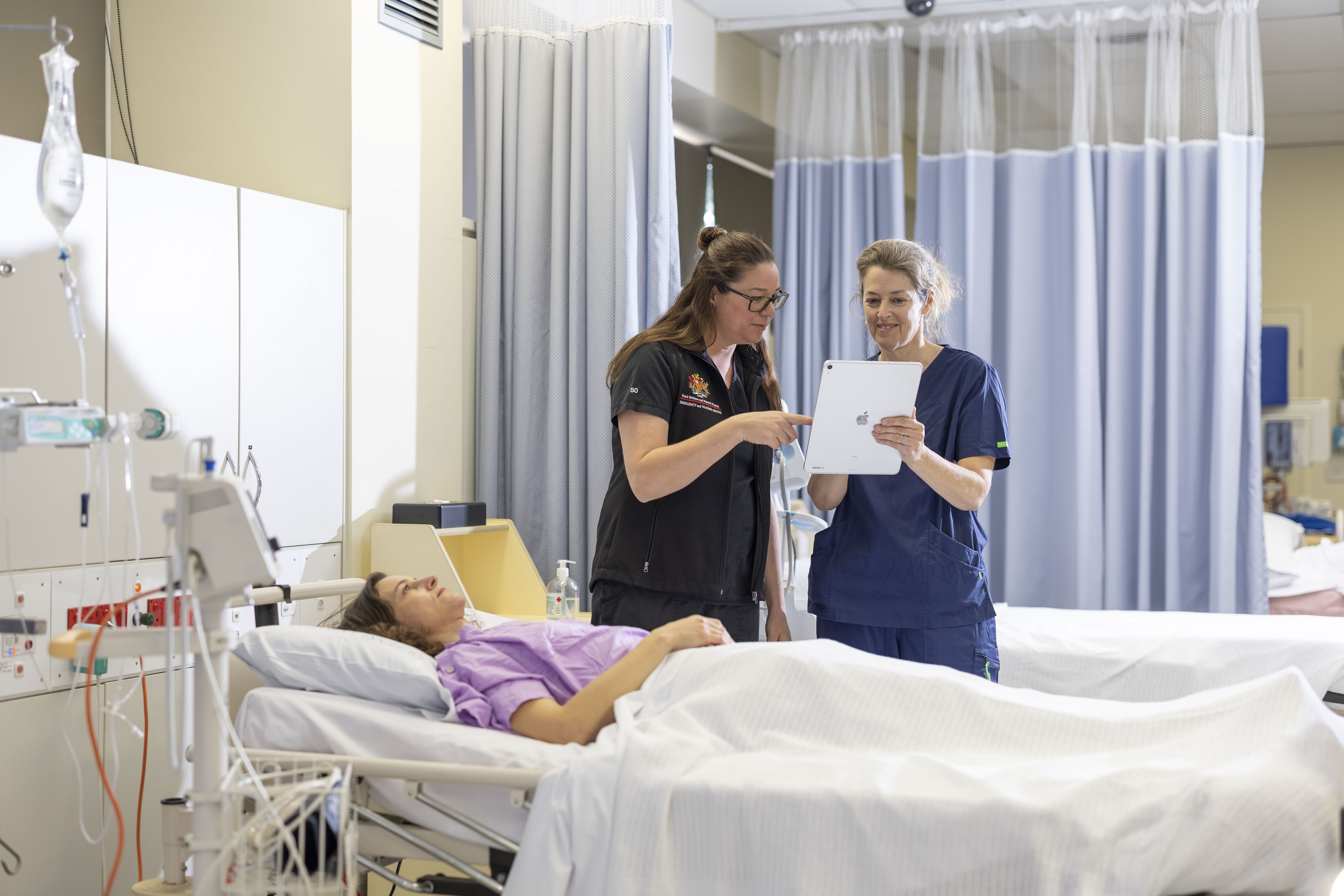
27 March 2024
Health Translation Queensland (HTQ) has provided a Consumer and Community Involvement microgrant to Queensland researchers seeking to improve care for people with injuries. The research team aims to build a full picture of the injured patient’s journey from the emergency department to recovery, drawing on insights from health professionals and consumers.
Professor Kirsten Vallmuur said the research program – Navigating injured patient journeys through emergency care to recovery (NINJER) – will assess the injured patient’s profile, journey, treatment, costs and outcomes across the continuum of care.
“Using this information, we will build a platform that supports a holistic, user-friendly research platform for injury management from emergency to recovery,” Professor Vallmuur said.
“Injury disproportionately affects people from rural and remote locations, Indigenous Australians and the elderly and results in catastrophic disability for a substantial number of people each year.
“Nationwide, there were 783,000 injury-related hospitalisations in 2021-22. In Queensland, injury is the fourth leading cause of hospitalisation and the second leading cause of emergency presentations, with almost 385,500 emergency presentations for injury during 2022-23.
“We are looking for ways to improve care and increase system efficiencies, leading to better health outcomes for Queenslanders and lowering the burden on our health system.”
HTQ’s microgrant has enabled the NINJER team to include patient voices from the initial project stages.
Professor Vallmuur explained for the program to be meaningful, it had to include solid consumer representation throughout the project lifecycle.
“By including a consumer with lived experience of major trauma in Queensland as an equal team member, this project will focus on the domains and approaches that matter to patients.”

In 2023, the NINJER team decided to apply for a Medical Research Futures Fund (MRFF) Research Data Infrastructure Grant to bring together several components of the project.
As part of the research team, a patient from the Jamieson Trauma Institute provided valuable input to the project conception and grant proposal, joining several iterative sessions to voice their concerns and opinions about the project.
Professor Vallmuur said input from the consumer representative helped the team to design appropriate consumer engagement into the methodology, ensuring input from consumers is received at critical decision points in the research study timeline.
“If NINJER secures MRFF funding, consumer representatives will be an ongoing part of the research team until the project is complete.
“Consumers with lived experience of major trauma will contribute to the design of user workshops, be active participants in workshops and contribute to the proof-of-concept tool.
“The project takes an iterative build, consult, and revise approach to development, so stakeholders interested in the project will have visibility of the work throughout the life of the 4-year project.”
If the team’s grant application is successful, they expect to start work in late 2024.
About the NINJER project
The NINJER project will bring together experts in trauma clinical care, data linkage, digital health, geospatial visualisation, process mining, data analytics, data visualisation, epidemiology, biostatistics, health economics, technical infrastructure, rehabilitation engineering, health system planning, and compensation system planning.
In collaboration with these experts, the research team aims to develop the tooling, architecture, software, and governance structures to build a patient flow injury atlas platform.
The platform will include interactive dashboards, mapping visualisations, trend analysis and forecasting modules that inform and support the decisions made by health professionals caring for an injured patient.
This project is a collaboration between the Australian Centre for Health Services Innovation, Queensland University of Technology and the Jamieson Trauma Institute, Metro North Hospital and Health Service, The University of Queensland, Retrieval Services Queensland, and Queensland Ambulance Service, with support partners from a wide range of entities across health, safety regulation and compensation, and technology providers.
For more information or to apply for a Consumer and Community Involvement microgrant, please visit the CCI Microgrants Program web page.
The information about injury-related hospitalisations is sourced from:
Australian Institute of Health and Welfare (AIHW)
Queensland Chief Health Officer report on hospital episodes of care
AIHW emergency department care data
Quicklinks
Health Translation Queensland acknowledges the Traditional Owners and their custodianship of the lands on which we live, work, and play. We pay our respects to their Ancestors and their Descendants, who continue cultural and spiritual connections to Country. We recognise their valuable contributions to Australian and global society.